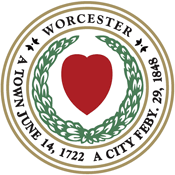Local organizations doing sustainability work
Advocacy related to Food Justice and Active Community: Worcester Food & Active Living Policy Council is a coalition of organizations working to foster a healthy and just food system and active community environment in Worcester via public education, policy advocacy and collaboration. The coalition is comprised of a Steering Committee, Working Groups, and Members. The current working groups are: WalkBike Worcester ~ Urban Agriculture ~ SNAP ~ Early Childhood Obesity Working Group.
Food Justice: Regional Environmental Council is a non-profit grassroots environmental justice organization founded in 1972. REC works on building healthy, sustainable and just communities. REC’s principal Food Justice Program is aimed at creating access to food for Worcester’s most food insecure communities through tending community gardens and associated youth and leadership development, selling produce at the farmer markets, and related activities.
Green Jobs and Environmental Justice:
- Worcester Roots Project, a non-profit organization, was founded in 2001, with the goal of addressing the environmental justice concerns of lead in the soil (from the widely used lead paint prior to the 1978 ban). Currently, WRP supports worker co-operatives, promotes the development of green jobs, prioritizes youth empowerment and runs the following projects: Toxic Soil Busters, Youth In Charge, Worcester Energy Barnraisers, as well as Incubation and Training Collective.
- Green Jobs Academy provides entry level skills training preparing individuals for in-demand, living wage jobs with a career ladder in the building weatherization industry.
Open Space Preservation and Advocacy:
- Greater Worcester Land Trust, a non-profit organization founded in 1987, works to strategically preserve and then manage open space in Worcester and surrounding towns.
- Mass Audubon's Broad Meadow Brook Conservation Center & Wildlife Sanctuary is the largest urban wildlife sanctuary in New England, with more than 400 acres cooperatively managed or owned by Mass Audubon. Interpretive signs guide along well-marked trails through woods, fields, streams, and marsh; with a portion of the trails wheelchair accessible. The sanctuary has a very strong environmental education component.
The sanctuary also has a green building, with its own renewable energy generation, water conservation features, and a rain garden in the parking lot. Next door is its new Education Center, which is Mass Audubon’s first deep-energy retrofit project, converting a former residence into a new program facility.
In Worcester, Mass Audubon has been very involved with local efforts to protect water resources and save open space. Mass Audubon’s “Shaping the Future of Your Community” program helps the fastest-developing communities chart a more sustainable future through customized community workshops and direct assistance (zoning updates, planning efforts, and more).
Urban Forest: Worcester Tree Initiative, formed in January 2009 in the wake of the urban forest devastation due to the invasive Asian Longhorned Beetle, uses a community based approach to plant and care for trees, educate and train tree stewards, as well as emphasize and educate about trees’ contribution to the environment, environmental justice and quality of life.
While not comprehensive, this list provides a sample of a rich civil society and engaged citizenry of our city.

